Filter by
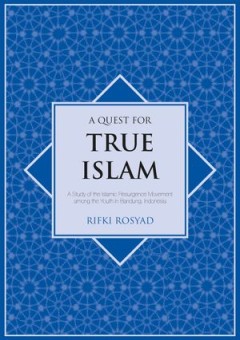
A Quest for True Islam: A Study of the Islamic Resurgence Movement among the …
This study presents the contemporary Islamic resurgence movement among young people in Bandung Indonesia, focusing on its emergence, development and routinisation. It traces various factors and conditions that contributed to the emergence of the movement. It also tries to explain how and why young people (students in particular) turn to Islam, and how the movement is organised and developed amo…
- Edition
- -
- ISBN/ISSN
- 9781921313080
- Collation
- -
- Series Title
- -
- Call Number
- 297 ROS q
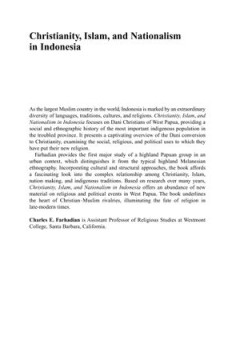
Christianity, Islam and Nationalism in Indonesia
Although over eighty percent of the country is Muslim, Indonesia is marked by an extraordinary diversity in language, ancestry, culture, religion and ways of life. This book focuses on the Christian Dani of West Papua, providing a social and ethnographic history of the most important indigenous population in the troubled province. It presents a fascinating overview of the Dani’s conversion to…
- Edition
- -
- ISBN/ISSN
- 9780203007556
- Collation
- -
- Series Title
- -
- Call Number
- 297.9598 FAR c
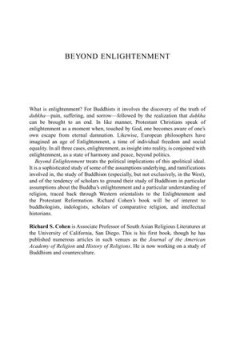
Beyond Enlightenment
The vast majority of books on Buddhism describe the Buddha using the word enlightened, rather than awakened. This bias has resulted in Buddhism becoming generally perceived as the eponymous religion of enlightenment. Beyond Enlightenment is a sophisticated study of some of the underlying assumptions involved in the study of Buddhism (especially, but not exclusively, in the West). It investigate…
- Edition
- -
- ISBN/ISSN
- 9780203098783
- Collation
- -
- Series Title
- -
- Call Number
- 306.6 COH b

Making Religion and Human Rights at the United Nations
The series Religion and Society (RS) contributes to the exploration of religions as social systems– both in Western and non-Western societies; in particular, it examines religions in their differentiation from, and intersection with, other cultural systems, such as art, economy, law and politics. Due attention is given to paradigmatic case or comparative studies that exhibit a clear theoretic…
- Edition
- -
- ISBN/ISSN
- 9783110478068
- Collation
- -
- Series Title
- -
- Call Number
- -

History and Religion Narrating a Religious Past
This volume is the first systematic scholarly study that analyses the complex relationship between history and religion. It considers religious groups as both producers of historical narratives and topics of historiography. From different disciplinary perspectives, the authors explore how religions are historicised. In so doing, they address the biases and elisions of current analytical and des…
- Edition
- -
- ISBN/ISSN
- 9783110445954
- Collation
- -
- Series Title
- -
- Call Number
- -

Converts of Conviction
The series Studies and Texts in Scepticism contains monographs, translations, and collected essays exploring scepticism in its dual manifestation as a purely philosophical tradition and as a set of sceptical strategies, concepts, and attitudes in the cultural field - especially in religions, perhaps most notably in Judaism. In such cultural contexts scepticism manifests as a critical attitude t…
- Edition
- -
- ISBN/ISSN
- 9783110530797
- Collation
- -
- Series Title
- -
- Call Number
- -

Contesting Religion
As Scandinavian societies experience increased ethno-religious diversity, their Christian-Lutheran heritage and strong traditions of welfare and solidarity are being challenged and contested. This book explores conflicts related to religion as they play out in public broadcasting, social media, local civic settings, and schools. It examines how the mediatization of these controversies influence…
- Edition
- -
- ISBN/ISSN
- 9783110502060
- Collation
- -
- Series Title
- -
- Call Number
- -
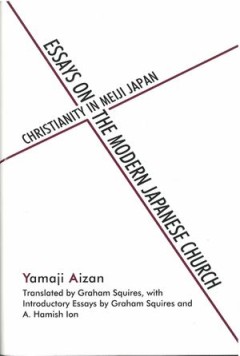
Essays on the Modern Japanese Church: Christianity in Meiji Japan
Essays on the Modern Japanese Church (Gendai Nihon kyokai shiron), published in 1906, was the first Japanese-language history of Christianity in Meiji Japan. Yamaji Aizan’s firsthand account describes the reintroduction of Christianity to Japan—its development, rapid expansion, and decline—and its place in the social, political, and intellectual life of the Meiji period. Yamaji’s overal…
- Edition
- -
- ISBN/ISSN
- 9780472901913
- Collation
- -
- Series Title
- -
- Call Number
- 808.84 YAM e
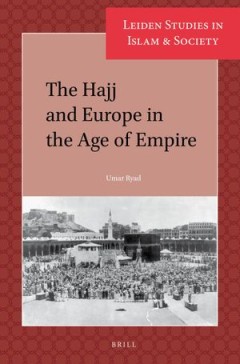
The Hajj and Europe in the Age of Empire
The present volume focuses on the political perceptions of the Hajj, its global religious appeal to Muslims, and the European struggle for influence and supremacy in the Muslim world in the age of pre-colonial and colonial empires. In the late fifteenth century and early sixteenth century, a pivotal change in seafaring occurred, through which western Europeans played important roles in politics…
- Edition
- -
- ISBN/ISSN
- 9789004323346
- Collation
- -
- Series Title
- -
- Call Number
- -
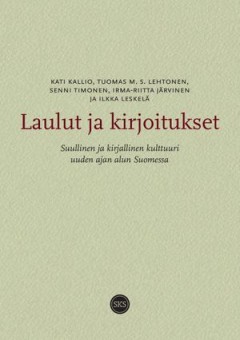
Laulut Ja Kirjoitukset Suullinen Ja Kirjallinen Kulttuuri Uuden Ajan Alun Su…
"Songs and writings: oral and literary cultures in early-modern Finland renews the understanding of exchange between the learned culture of clergymen and the culture of commoners, or “folk”. What happened when the Reformation changed the position of the oral vernacular language to literary and ecclesiastical, and when folk beliefs seem to have become an object for more intensive surveillanc…
- Edition
- -
- ISBN/ISSN
- 9789522228604
- Collation
- -
- Series Title
- -
- Call Number
- -
 Computer Science, Information & General Works
Computer Science, Information & General Works  Philosophy & Psychology
Philosophy & Psychology  Religion
Religion  Social Sciences
Social Sciences  Language
Language  Pure Science
Pure Science  Applied Sciences
Applied Sciences  Art & Recreation
Art & Recreation  Literature
Literature  History & Geography
History & Geography